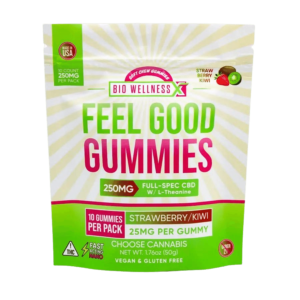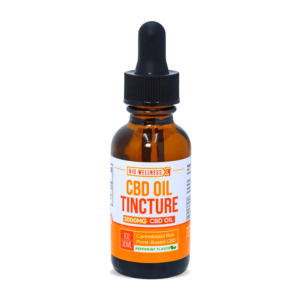Exercising right can do wonders for your physical fitness and overall well-being, particularly when paired with a balanced diet. Notably, it enhances cardiovascular health and boosts mood.
But what about incorporating CBD into your fitness routine? Surprisingly, the answer is a resounding yes.
CBD, available in various forms and delivery methods, holds the potential to elevate your exercise regimen. Certain topical CBD products even contain approved compounds that alleviate muscle and joint soreness.
An increasing number of fitness aficionados and athletes are embracing CBD-infused lotions, gels, tinctures, edibles, and capsules for expedited recovery post-exercise, improved sleep, and a plethora of other reported advantages.
Pairing a cannabis plant derivative like CBD with exercise might seem unconventional, prompting us to look deeper into what CBD is, what it isn’t, and how it could amplify your training journey.
CBD and Your Workout Routine
CBD (cannabidiol) is a compound found in cannabis plants. Unlike THC (tetrahydrocannabinol), CBD is non-psychoactive, so it doesn’t induce the high typical of cannabis but still offers numerous therapeutic benefits. Primarily extracted from hemp, CBD is legally accessible in many areas as long as it contains minimal THC.
Several international anti-doping agencies and top sports governing bodies have addressed the issue of cannabis in recent years. While CBD oil might offer benefits when combined with exercise, it is not classified as a performance-enhancing drug (PED) like stimulants or anabolic steroids.
Anabolic steroids, synthetic forms of testosterone, enhance muscle repair and growth, providing athletes with an unfair advantage. Stimulants can artificially boost endurance and sharpen focus. But with CBD, it’s widely considered as a natural and acceptable way to promote healthy body and muscle function.
Preliminary evidence suggests CBD may aid in recovery after intense physical activity, which is beneficial for fitness enthusiasts. However, early research on CBD’s effects is limited by small sample sizes, varying dosages, and other factors, indicating that more comprehensive studies are needed to fully understand its benefits.
Even if future studies confirm these early findings, CBD still won’t enhance performance like steroids or stimulants. In fact, CBD might have the opposite effect of stimulants, so consuming large amounts of CBD before or during exercise may not be effective.
Workout Recovery and Physical Recovery with CBD
But on the brighter side, CBD can help athletes and normal people alike with the workout recovery routine with its medicinal benefits.
Anti-Inflammatory Properties
CBD’s anti-inflammatory effects are especially beneficial post-workout, reducing muscle soreness and joint pain, which can accelerate recovery. This makes CBD a valuable option for athletes involved in high-intensity activities that put significant strain on muscles.
Physical Relief
CBD is known for its potential to alleviate both chronic and acute disomfort. It interacts with the endocannabinoid system, which plays a role in pain regulation. Athletes might find CBD useful for managing tendonitis and general muscle aches, helping them maintain consistent training routines.
Improved Sleep Quality
Quality sleep is essential for muscle recovery, and CBD may enhance sleep by addressing anxiety and pain, common sleep disruptors. By promoting deeper sleep, CBD aids in muscle tissue repair and energy restoration.
More Potential Benefits of CBD for Fitness
Many athletes are turning to CBD to enhance their fitness routines.CBD may not be a traditional performance-enhancing substance, but its indirect benefits, such as improved recovery and reduced stress, can help athletes achieve better results.
Enhancing Focus and Calm
CBD has been found to help reduce stress and anxiety, which can be particularly beneficial before intense workouts or competitions. Lower anxiety levels can lead to better concentration and a more consistent performance.
Boosting Stamina and Endurance
By helping to regulate cortisol, a stress hormone linked to fatigue, CBD can potentially improve stamina and endurance, allowing for longer and more effective workouts.
Managing Discomfort and Inflammation
CBD is known for its anti-inflammatory and relieving properties. Incorporating CBD into your fitness routine may help in reducing muscle soreness and accelerate recovery times.
Improving Sleep Quality
Good quality sleep is crucial for recovery and overall performance. CBD has been shown to aid in improving sleep quality, which can lead to better recovery and enhanced athletic performance.
Legal and Safety Considerations
Before incorporating CBD into your fitness routine, ensure it is legal in your area. Thanks to the 2018 Farm Bill, hemp and hemp-derived products are federally legal, but some states have a strict stance on CBD products. After making sure you’re in full legal compliance, always choose high-quality, third-party-tested CBD products to ensure safety and efficacy.
How to Use CBD for Your Exercise Routine
To harness the benefits of CBD, it’s important to choose the right products and understand the proper dosages and timing.
Choosing the Right CBD Product
CBD products come in various forms, including CBD oil, capsules, edibles, and topical CBD creams. For systemic effects, oral CBD, such as oils or capsules, are ideal, while topical CBD can be applied directly to sore muscles for targeted relief.
Pre-Workout Routine
Incorporating CBD into your pre-workout routine can help reduce anxiety and prepare your body for strenuous exercise. Taking CBD 30-60 minutes before your workout allows it to take effect, promoting focus and reducing potential discomfort during exercise.
Post-Workout Recovery
Using CBD after workouts can help alleviate muscle soreness and promote recovery. Topical CBD products can be applied to specific areas of discomfort, while oral CBD can provide overall anti-inflammatory benefits.
Safety Considerations
While CBD is generally well-tolerated, it’s important to consult with a healthcare professional before adding it to your routine, especially if you are taking other medications. Ensure that the CBD product you choose is third-party tested for purity and potency and free from harmful contaminants.
Scientific Evidence and Clinical Trials
Research into the effects of CBD on fitness and recovery is ongoing, with several clinical trials and randomized controlled trials highlighting its potential benefits:
- Muscle Soreness and Recovery: Studies have shown that CBD can significantly reduce muscle soreness and inflammation, aiding in faster recovery after intense workouts.
- Sleep Quality: Clinical trials have demonstrated that CBD can improve sleep quality, leading to better recovery and overall health.
- Anxiety and Stress: Research indicates that CBD’s anxiolytic effects can reduce anxiety and stress, enhancing focus and performance during workouts.
- Cognitive Function: Studies on CBD have shown improvements in cognitive function, maximal oxygen consumption, and mental health, contributing to better overall life scores and personal growth scores.
Final Thoughts: CBD for Fitness: Does it Work?
CBD offers a natural and effective way to enhance your fitness routine. From reducing pain and inflammation to improving sleep and mental health, CBD can help you achieve your fitness goals more efficiently. As research continues to uncover the benefits of CBD for fitness, incorporating it into your workout routine could be the key to unlocking new levels of performance and recovery.
Whether you’re a seasoned athlete or just starting your fitness journey, consider exploring the potential of CBD to support your physical and mental well-being. By integrating CBD into your exercise routine, you can take a holistic approach to fitness, ensuring both your body and mind are in peak condition.

Legal Disclaimer:
By reading this information presented, you agree to release the author of any liability that comes from using this data. This post contains no legal advice. Claims about cannabinoids have not yet been approved by the FDA. Cannabis laws and regulations are subject to change. Read the full legal disclaimer here.
Other Topics You Might Want To Read:
- Delta-8 vs. Delta-10 For Pain: Which Works The Best?
- CBD for Vertigo – Discover the Potential
- Finding the Best CBN Gummies for Sleep Support
- What Are the Best Forms of CBN Available Today?
- Organic 50mg Delta-8 Gummies: Benefits and Effects
- CBG and CBD: Differences and Similarities
- What is Full Spectrum THC?
- 100mg Delta-8 THC Gummies Review From BioWellnessX
- Indica vs Sativa Edibles: What’s the Difference?
- Delta 8 Edibles Review And Where to Buy Them!
- Is Delta-8 or CBD Better For Pain? The Top 5 Differences!
References:
- Cannabidiol and Intestinal Motility
- Delta-8-THC: Delta-9-THC’s nicer younger sibling?
- Consumer Experiences with Delta-8-THC
- Hemp Production and the 2018 Farm Bill – 07/25/2019 | FDA
- The Controlled Substances Act (dea.gov)
- Exploring Health and Fitness in Cannabis Users
- Effects of Oral Cannabinoid on Health and Fitness
FAQs About CBD and Fitness
CBD’s anti-inflammatory properties help reduce inflammation and muscle soreness after strenuous exercise. By interacting with the body’s endocannabinoid system, CBD can alleviate the discomfort associated with DOMS.
Taking CBD 30-60 minutes before your workout can help reduce anxiety and improve focus, preparing your body and mind for strenuous exercise. This can be part of a comprehensive CBD pre-workout routine.
CBD products come in various forms, including CBD oil, capsules, edibles, and topical creams. Each type has its own benefits, with oral CBD providing systemic effects and topical CBD targeting localized muscle soreness.
Several clinical trials and randomized controlled trials have shown that CBD can reduce muscle soreness, improve sleep quality, and reduce anxiety, supporting its use in fitness routines. Further research is ongoing to understand its benefits fully.
While CBD is generally well-tolerated, some users may experience mild adverse events such as fatigue or changes in appetite. It’s important to consult with a healthcare professional before starting CBD, especially if you are taking other medications.










